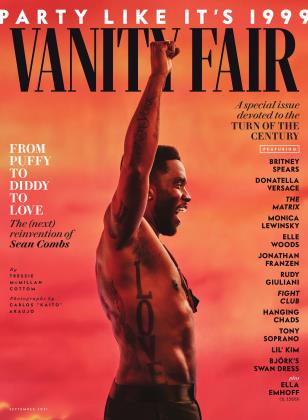Sign In to Your Account
Subscribers have complete access to the archive.
Sign In Not a Subscriber?Join NowLegal scholar Kimberlé Crenshaw, who cocreated critical race theory, now finds herself at the roiling center of the culture wars
September 2021 Rita Omokha PHILIP CHEUNGLegal scholar Kimberlé Crenshaw, who cocreated critical race theory, now finds herself at the roiling center of the culture wars
September 2021 Rita Omokha PHILIP CHEUNG View Full Issue
View Full Issue






Subscribers have complete access to the archive.
Sign In Not a Subscriber?Join Now